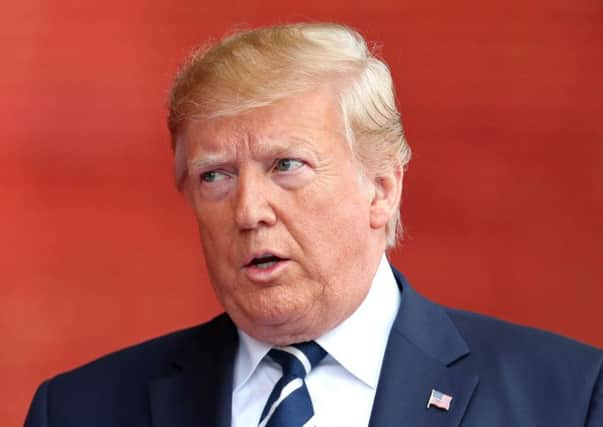Why the UK is losing influence in Trump’s America – Martin Docherty-Hughes


The resignation of UK Ambassador to Washington Sir Kim Darroch brought to an end days of speculation about his future after the leak of a series of diplomatic messages critical of US President Donald Trump – but there is a far more serious and systemic issue which has been unveiled by this scandal, one which sees a Britain trapped in the strategic doldrums it has navigated itself into through Brexit, and unable to agree on a way out.
It was a pattern I first detected when visiting Washington last year with the Defence Select Committee on an inquiry into the ‘Special Relationship’ the UK likes to think it has with the US. Seeing it from the other side was something of a surprise to my fellow committee members.
Advertisement
Hide AdAdvertisement
Hide AdOn Monday night, Washington-based journalist and writer Ben Judah took to Twitter to put the events into the Beltway context that most on this side of the pond would have been missing. “London/FCO hasn’t kept pace with how diplomacy and DC have changed since Tony Blair’s first term. Resources have shrunk as the game itself has changed. Meanwhile other powers have filled the vacuum.”
“France sponsors scholars, assiduously works with think-tanks,” added Judah, describing part of France’s efforts to make sure it stays relevant in Washington – and it is not just states the UK considers near peers who are reaping the rewards of such strategic clarity in their relationship with Washington. Ireland has been active in an influence campaign that paid off when it emerged earlier this year that Congress would not pass any UK/US free-trade deal that did not respect the Good Friday Agreement.
And the Gulf States have been using their deep pockets to sponsor think tanks, employ an army of lobbyists and spend eye-watering sums of money in Trump International properties in a policy that has led to unprecedented levels of influence for their governments.
Yet, despite all its obvious advantages in dealing with the Americans, the UK seems unable to put itself in the picture in Washington, and the loss of the senior civil servant in charge of that is unlikely to ameliorate the situation. Such listlessness makes the UK vulnerable to other strategic icebergs. Brexit is an ongoing bin fire which will not be extinguished by whatever decision is made by Boris on 31 October, with the media focus on the minutiae of the negotiations distracting from the existential questions that the whole endeavour has posed about the UK’s place in the world.
Similarly, the confused response of the UK Government to the pro-democracy protests in Hong Kong further underlines the sense of strategic drift. Quite rightly, Foreign Secretary Jeremy Hunt came out strongly against a crackdown on the protests, citing the promises made to respect democracy in Hong Kong prior to the 1997 handover, but then overstretched by threatening “serious consequences” for China if it persisted. This allowed Beijing to brush off the claims and to score nationalist points against a former colonial power. But it was most telling because senior UK ministers had publicly addressed the rise of China so rarely, and his remarks therefore emerged from within a near vacuum.
As a Scottish nationalist, I take no pleasure from this misfortune. After independence, the UK will remain our most important strategic partner, and its inability to have a clear idea of itself on the global stage is not to Scotland’s benefit. The whole sorry episode, however, reinforces the need for us all to be able to speak truth to our friends, and we cannot let Britain’s weak position continue to affect Scotland.
Martin Docherty-Hughes is SNP MP for West Dunbartonshire